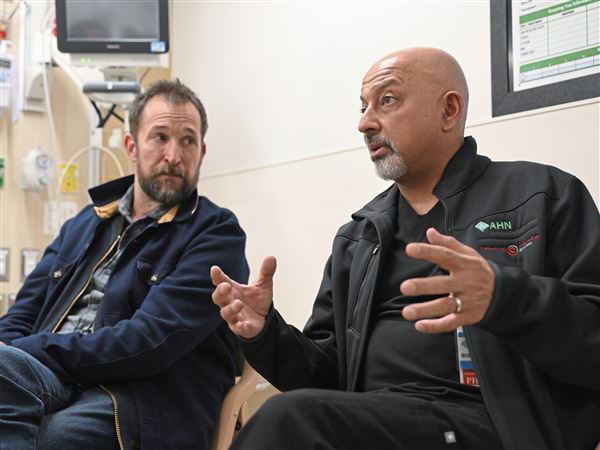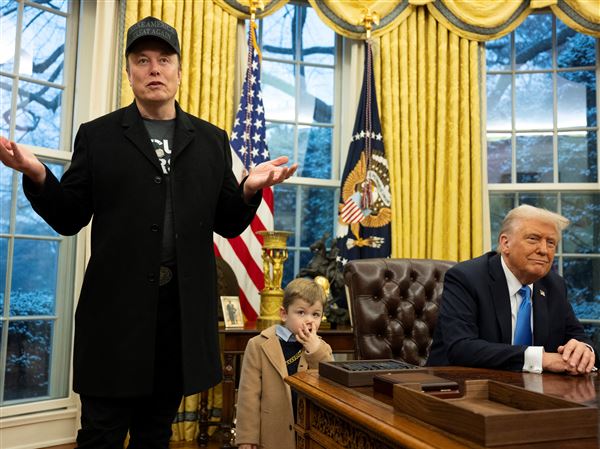At 6:35 a.m. Friday, Amesh Adalja, an infectious disease expert in Pittsburgh, was on CNN talking about Ebola and the latest case in New York.
At 7:20 a.m. Dr. Adalja was on Al-Jazeera of America noting that a possible new vaccine to combat the deadly virus would be important but that in the end, public health interventions would turn the tide.
At noon Friday he was up on the Yahoo! Singapore website, talking to Tanya Rivero on a Wall Street Journal video, “Lunch Break,” about new guidelines that have been put in place for health care workers.
As a respected epidemiologist with a gift for translating complex medical issues into plain language, Dr. Adalja has become the go-to expert for international media to talk about Ebola.
Dr. Adalja, a senior associate at the UPMC Center for Health Security, also represents the Infectious Disease Society of America, where he serves on the organization’s Public Health Committee and is associate editor of the journal Biosecurity and Bioterrorism.
A native of Butler, Dr. Adalja, 39, is a busy guy: besides his work at the Health Security Center, he’s assistant clinical professor in the Department of Critical Care Medicine, assistant clinical professor in the Department of Emergency Medicine, and adjunct instructor in the Department of Medicine’s Division of Infectious Diseases at the University of Pittsburgh School of Medicine and UPMC. He also serves as a medical branch director for UPMC’s Corporate Emergency Coordination Center and is appointed to the City of Pittsburgh's HIV Commission. The list goes on and on.
Dr. Adalja’s Twitter feed serves as a one-man breaking news site about Ebola, where he posts every new development, national or local. On his own personal blog, Tracking Zebra, he muses about Ebola while sticking in a plug for one of his latest articles, for example, Time magazine, in which he questions whether hospitals are prepared.
While some of his TV and Web interviewers have seemed eager to hype the dangers of Ebola, Dr. Adalja generally turns the temperature down. He’s also quotable. Recently he told the BBC that hazmat suits “won't have much use other than as a Halloween costume," stressing, as we’ve heard again and again, that it’s not contagious unless you come into contact with bodily fluids of a person with symptoms.” That comment ended up being part of a story in the San Diego newspaper with this headline: “Haunting truth: Hazmat suits better for Halloween than Ebola in U.S. but interest is up.”
What’s it like to be the Ebola media darling?
It’s not known because UPMC has declined to make him available to the local media on the topic of Ebola.
Wendy Zellner, a spokeswoman for the health care system, said that Dr. Adalja is “just focusing on the national stuff. He is not available for anyone else locally.”
But she added that when these media conversations get past Dr. Adalja’s area of expertise in infectious diseases into clinical care, when he gets into “what hospitals are doing or what they should be doing, that gets into hospital operational decisions...it causes a lot of friction and problems with him internally” since Dr. Adalja isn’t “in the group that is doing those things.”
First Published: October 25, 2014, 4:00 a.m.
















